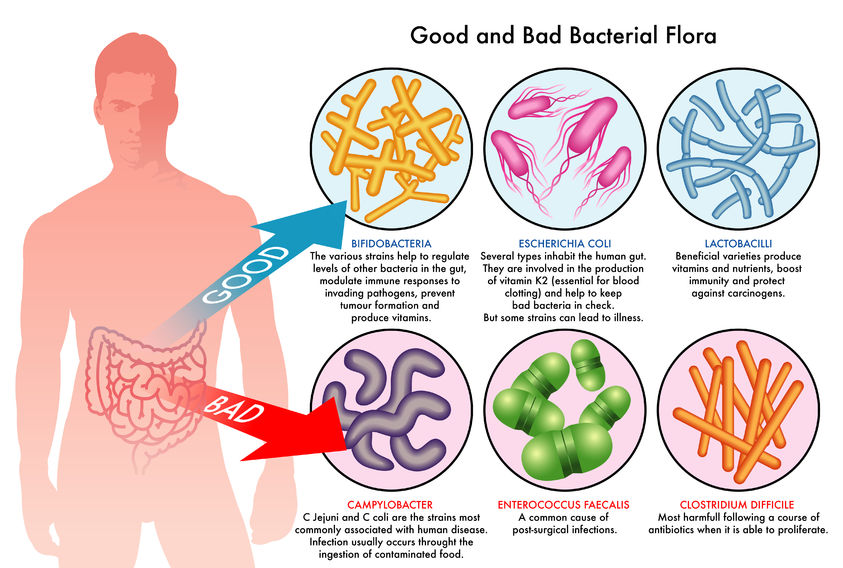We always hear about the importance of incorporating probiotic foods and/or supplements in our daily routine, but why? Our bodies are full of bacteria – both “good” and “bad”. Probiotics are essentially live bacteria or yeasts that contribute to healing digestive disturbances and multiple health ailments by restoring the “good” in our gut. Whether you are looking to rid yourself of something as simple as travellers’ diarrhea or manage something serious like Irritable Bowel Syndrome, the right probiotic may be the answer.
Plant-Based Probiotic Food Sources
- Kimc
 hi: A delicious Korean side-dish made from fermented cabbage and spicy/sour tastes.
hi: A delicious Korean side-dish made from fermented cabbage and spicy/sour tastes. - Kombucha: A refreshing beverage made by fermenting green tea with yeast and bacteria cultures.
- Sour or Salty Pickles: When choosing a pickle, go for a variety that cultivates the cucumber in water and sea salt so the beneficial bacteria can grow.
- Sauerkraut: Like Kimchi, this German dish is also a great probiotic source made from fermented cabbage.
- Miso: This dish consists of Soybeans fermented with brown rice to create a miso paste; commonly enjoyed in Miso Soup in many Asian cultures.
- Tempeh: This protein-packed food, also derived from fermented soybeans, is a great probiotic, fiber and protein source.
Choosing a Probiotic Strain
If you don’t think these foods will have a place in your everyday diet, or you just want to take an extra step towards optimal gut health, you may choose to include a probiotic supplement in your daily routine. If you’re new to taking probiotics, however, picking the right strain can be like finding a needle in a haystack. It’s important to remember that all probiotic strains serve different purposes, meaning one that’s right for you may not be right for someone else.
According to most studies, the best probiotic strains for overall gut health would be:
- Lactobacillus Acidophilus: Improves immune system, helps with nutrient absorption, lowers risk of allergies, reduces risk of eczema, and can treat chronic constipation and general digestive disturbances.
- Bifobacterium Bifidum: Prevents the growth of unwanted bacteria and yeasts, assists in breaking down food during digestion, helps with nutrient absorption, and can treat travellers’ diarrhea.
- Bifobacterium Longum: Helps maintain a normal digestive tract, boosts the immune system, prevents diarrhea (especially when taking antibiotics), reduces cholesterol, and alleviates symptoms from lactose intolerance.
Tips When Choosing a Supplement
- Check the expiration date
- See if the supplement has to be refrigerated; most probiotics do
- Ensure the specific strains are listed on the bottle (along with CFUs)
- Look for one with multiple strains due to the fact that all strains help the gut in a slightly different way

